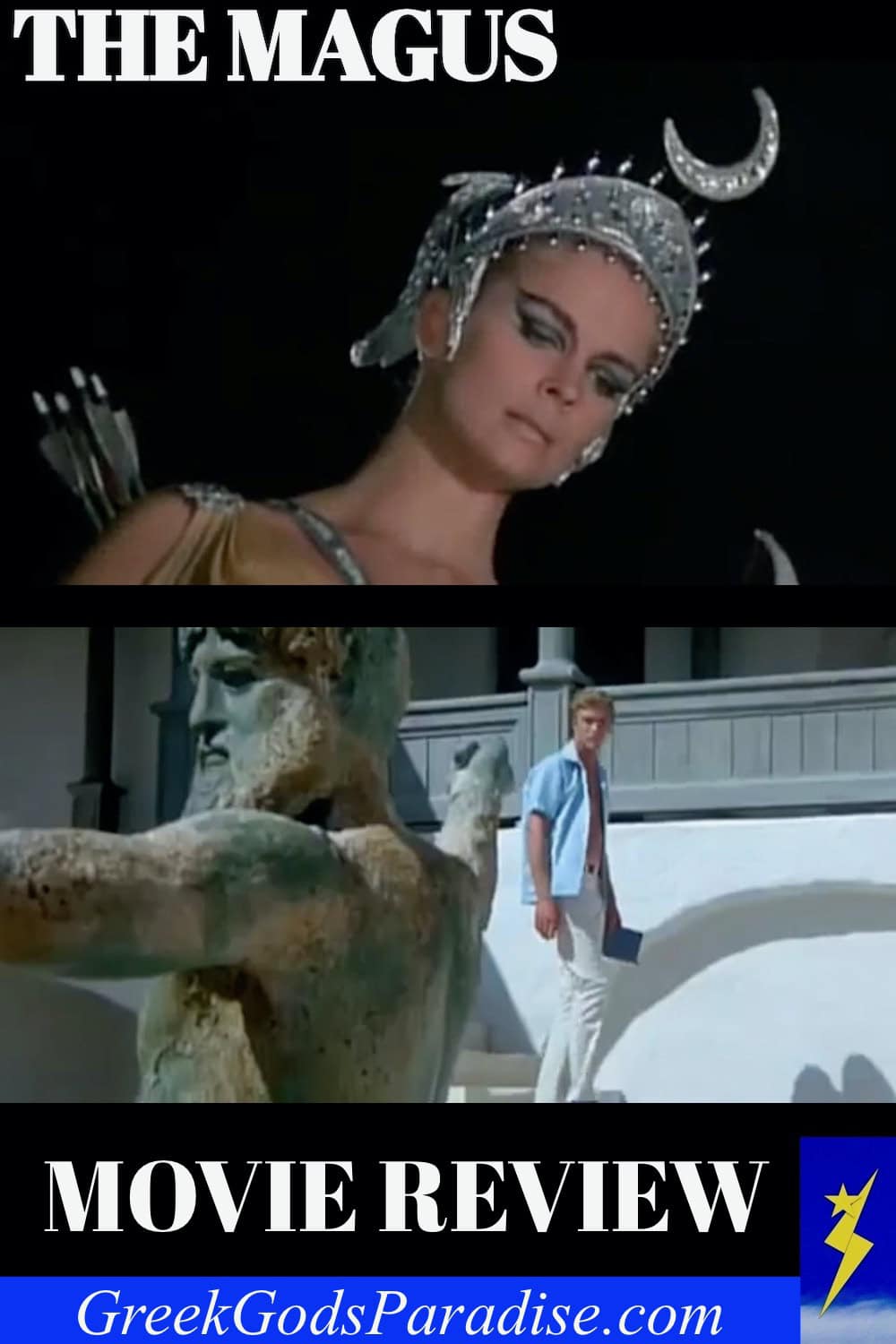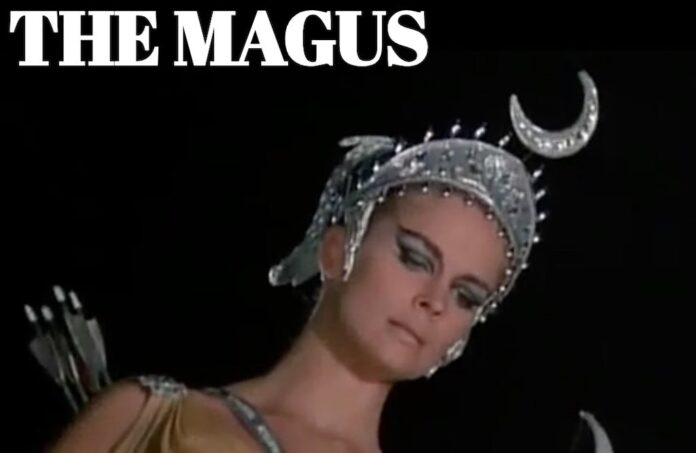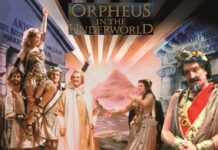In the swirling mists of psychological intrigue and purpose-of-life philosophy, “The Magus” (1968) casts a shadow that lingers long after the credits roll. Watching this super underappreciated film adapted from John Fowles’ enigmatic novel, offers more than just a weird mystery storyline; it invites viewers into a labyrinthine world where reality blurs with illusion.
The Magus was filmed on the Greek island of Spetses among other locations. Here are some more movies filmed in Greece and the Greek Islands, that I’m sure you will find interesting.
Featuring stellar performances by Michael Caine and Anthony Quinn, The Magus movie intertwines the lives of a brooding Englishman and a charismatic Greek recluse on a desolate island, creating a spellbinding interplay of manipulation and discovery.
Michael Caine, in the role of the disenchanted Englishman Nicholas, embodies a man at the crossroads of love and loss, while Quinn’s enigmatic Maurice embodies the tantalizing allure of the unknown.
The haunting Mediterranean landscape serves as a serene backdrop, enhancing the film’s themes of isolation and the search for identity. This cinematic adaptation dares to challenge viewers’ perceptions, blurring the lines between captor and captive, teacher and student.
As we dive into this forgotten classic, we unravel not only the film’s intricate plot but also its deeper reflections on the human psyche. One could start wondering whether The Magus is a mere psychological thriller, or does it serve as a philosophical exploration of the nature of existence itself?
One thing I never expected to see in The Magus movie was any kind of connection to World War II. Then there are the connections to Greek mythology in The Magus. Zeus, Apollo, Artemis, and even Medusa pop up in the film’s cleverly constructed storyline.
So let’s peel back the layers of this cinematic gem, revealing the profound questions buried within its beguiling surface without giving any major movie spoilers away.
The Magus: Introduction to the Mystery Movie
The 1968 film, The Magus, follows a teacher, Nicholas, portrayed by Michael Caine who relocates to the Greek island of Spetses to take a position at the Lord Byron School.
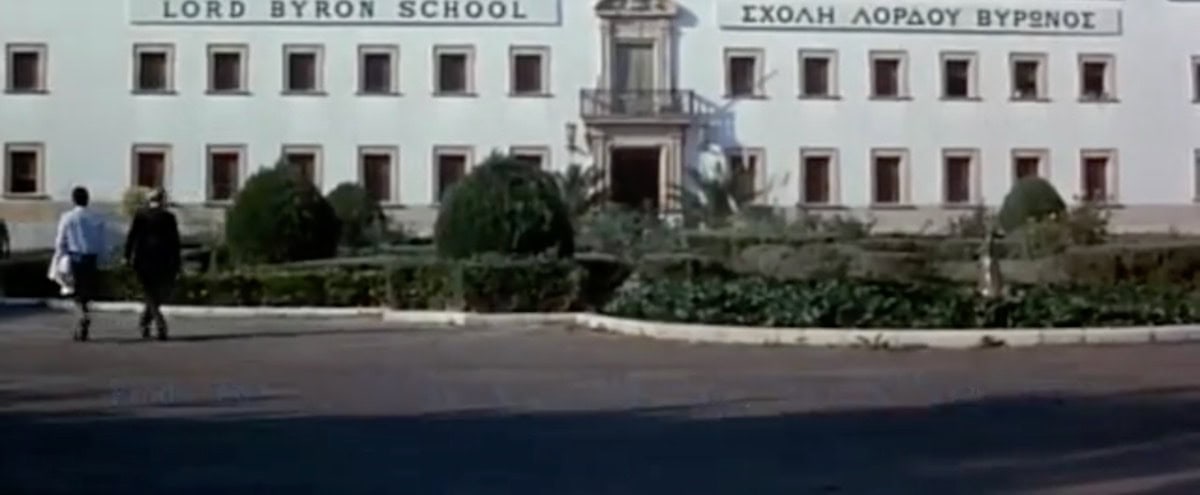
Upon his arrival, he discovers that the teacher he is replacing tragically committed suicide, adding a layer of mystery and tension to his new role.
As he navigates this unfamiliar environment and interacts with the locals, he becomes embroiled in the enigmatic and surreal events that unfold on the island, challenging his perceptions of reality and uncovering dark secrets that change the course of his life.
One day, after enjoying a swim at the beach, Nicholas discovers a poetry book mysteriously placed beneath his clothing on a rock. Intrigued and somewhat unsettled, he feels an inexplicable compulsion to walk in a specific direction. It doesn’t take long before he finds himself approaching a mysterious villa nestled beside the shore.
As he explores the villa, he comes across a striking statue of the god Zeus, which evokes a sense of wonder and deepens the air of mystery surrounding this enchanting hideaway.
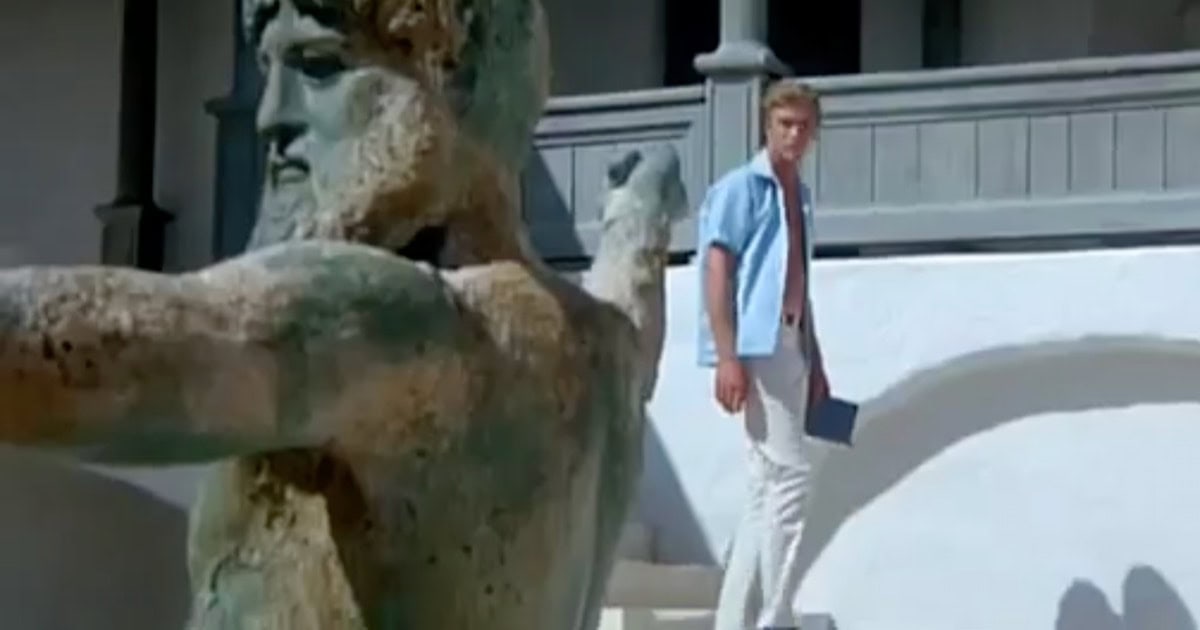
Soon after wandering around the place, he meets a man named Maurice Conchis, played by Anthony Quinn. At this stage, if you’re anything like me, you might start to ponder connections to Greek mythology. The setting even resembles a palace — almost like a miniature Olympus. One can’t help but wonder: Could Maurice Conchis be embodying a Greek God?
If so, who could he be? His enigmatic character and the surreal atmosphere suggest a deeper significance, inviting viewers to explore the parallels between his persona and the mythic figures of ancient Greece.
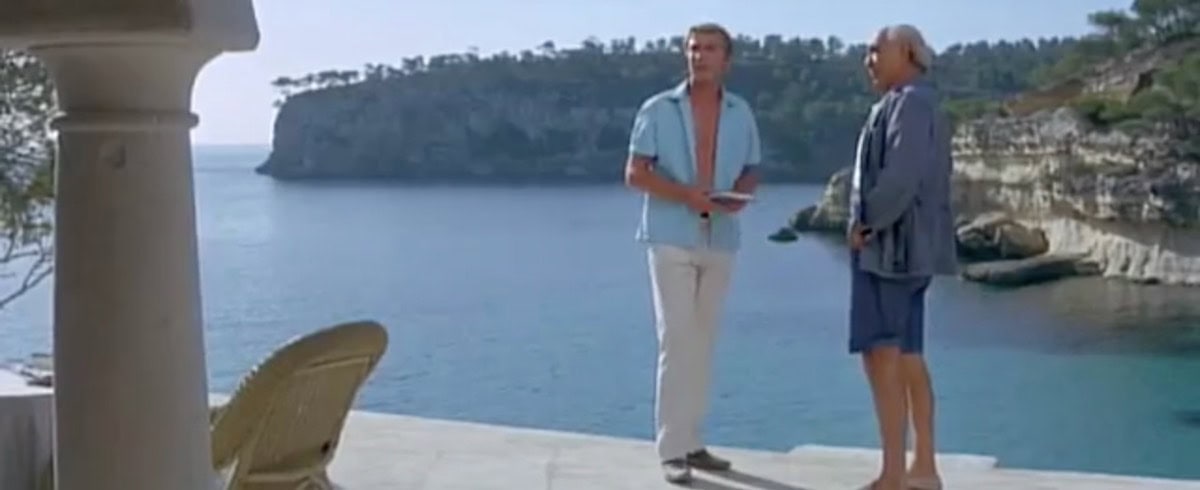
The Magus” (1968) does contain elements of Greek mythology in its storyline, inviting viewers to explore themes of power, manipulation, and the search for identity — concepts often associated with the pantheon of Greek Gods.
The character of Maurice Conchis may even serve as a modern incarnation of a Greek deity, embodying qualities of both creator and trickster, much like Hermes — the messenger God.
At this point, the film is still a big mystery. You truly have no idea in which direction the film will go. There is absolutely no way you could ever ever guess where the storyline is going if you haven’t read the book, seen The Magus before, or know anything about it prior to watching the movie yourself.
The Magus: Life or Death Dice Game
The Magus (1968) movie has one extremely memorable life-and-death dice game scene. It stands as a pivotal moment, brimming with psychological tension and existential stakes. This high-stakes game becomes a metaphor for the very essence of fate, intertwining the players’ lives with chance and intention.
As the game unfolds, the air thickens with an intoxicating mix of intrigue and dread. The protagonist, Nicholas, finds himself drawn into a labyrinthine spectacle orchestrated by the enigmatic Maurice Conchis, whose motives remain shrouded in secrecy.
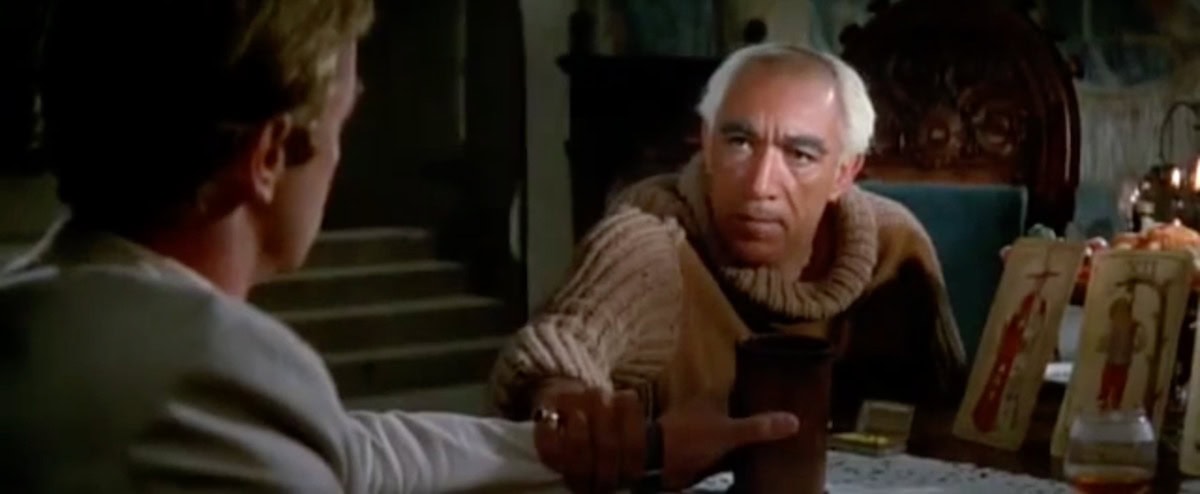
The players are not just gambling with numbers; they seem to be wagering their very souls against a backdrop of haunting choices and moral dilemmas. As the game progresses, it reveals layers of deception and manipulation, exposing the fragility of trust
This surreal experience is almost mystical, inviting the audience into a world where reality blurs with illusion. The vivid imagery, combined with the suspenseful dice rolls, immerses viewers in a dizzying atmosphere that echoes ancient rituals of chance and fate — themes deeply rooted in Greek mythology.
Ultimately, the life-or-death dice game in The Magus challenges not just the characters, but also the audience to ponder the nature of their own realities and the unpredictable forces that govern them. It’s a captivating exploration of how we navigate life’s uncertainties, leaving a lasting impression.
The Magus: Goddess or Mystery Lady
Lily is a pivotal character in The Magus, a novel by John Fowles published in 1966, which was later adapted into a film. In the story, she embodies mystery and charm, captivating both the protagonist and the audience. The film adaptation features actress Candice Bergen in this role, bringing to life Lily’s enigmatic qualities and complexity.
Lily’s character intertwines with themes of illusion, deception, and the search for identity, which are central to the narrative of The Magus. Her interactions with the protagonist, Nicholas Urfe, reveal layers of intrigue and psychological depth, as she influences his journey of self-discovery amidst the backdrop of an isolated Greek island.
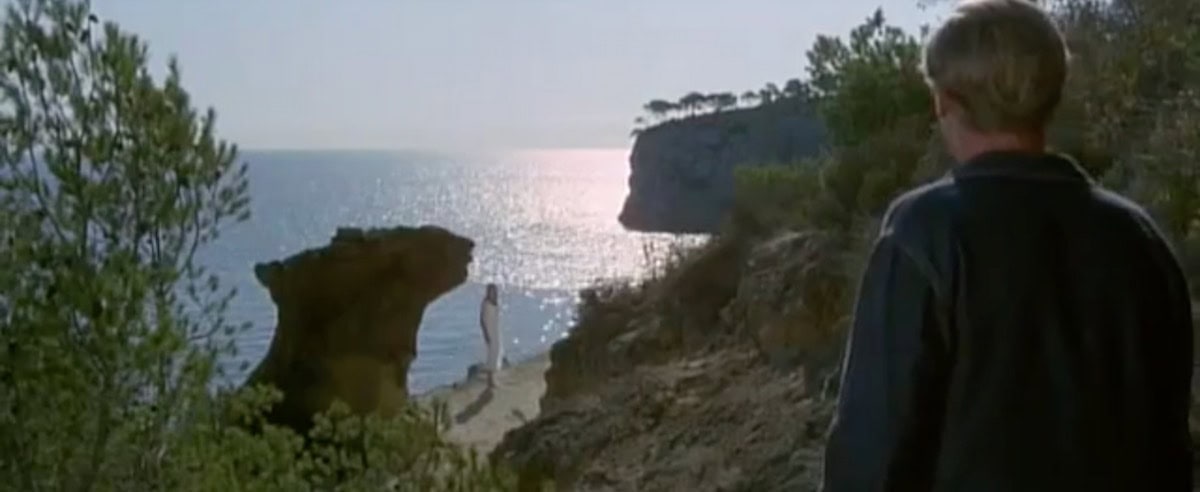
Bergen’s portrayal adds a captivating dimension to the character, making Lily a memorable figure in the cinematic interpretation.
Overall, Lily serves as a catalyst for the unfolding drama and philosophical questions within The Magus, prompting viewers and readers alike to reflect on the nature of reality versus illusion. The question you repeatedly ask yourself in the film is, ‘Who is Lily?’
You will even see a mysterious Apollo-like character in The Magus. As you can see, things get very weird in The Magus. What could his purpose be?
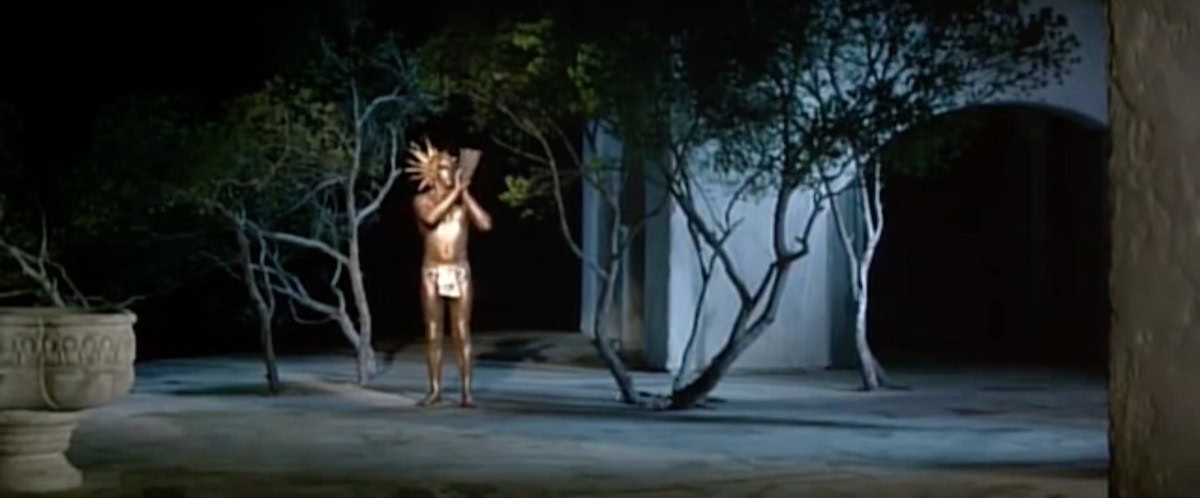
Diana the Huntress in The Magus
Could Lily actually be Diana (Artemis), the Goddess of the Hunt? In one scene in The Magus, she even shoots an arrow from high above on a rooftop, striking a satyr!
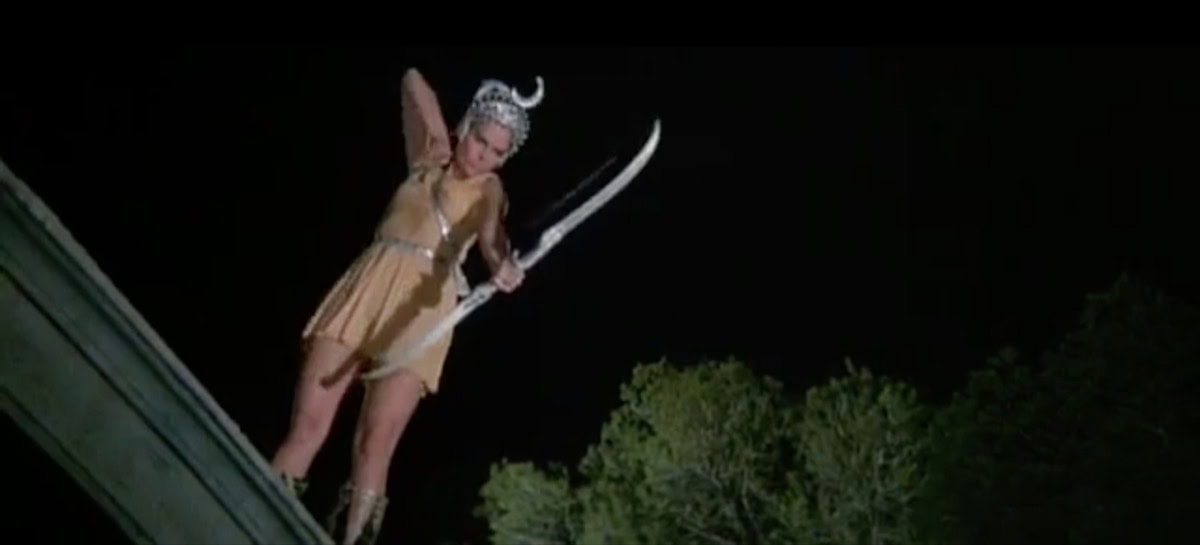
The weird mind games played in The Magus don’t get much more mysterious than this scene.
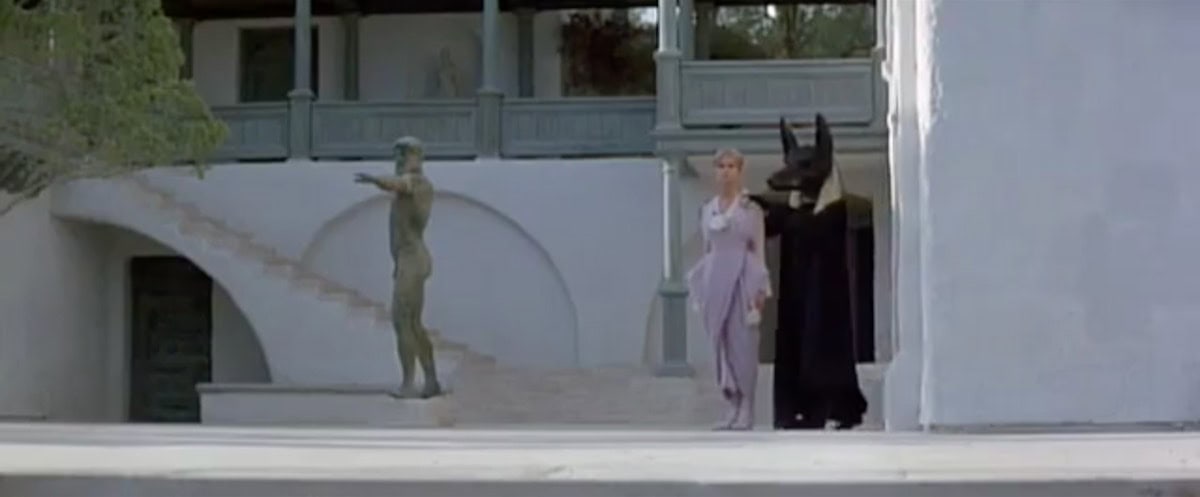
The Magus: Love Story
In The Magus (1968), the love story involving Anne unfolds like a delicate dance woven through the lush, enigmatic landscapes of a remote Greek island. Nicholas, the protagonist, finds himself captivated by Anne’s ethereal beauty and spirited nature. She’s not just a muse but a tempest of emotions, embodying the blend of innocence and experience that both intrigues and confounds him.
Picture them wandering through the vibrant hills, hand in hand, laughter echoing off the ancient stones. They share whispered dreams and unguarded secrets, revealing the vulnerabilities they each hide behind their facade. It’s in these quiet moments that Nicholas begins to see Anne for who she truly is — a mirror reflecting his innermost desires and fears.

It’s a poignant realization that love, much like the roll of a dice, is unpredictable but inherently intoxicating. The love story of Nicholas and Anne is not merely a romantic subplot; it is a vivid exploration of connection, vulnerability, and the enduring quest for meaning in a world shrouded in mystery.
The Magus: World War 2 Flashback
In a totally unexpected twist in The Magus movie, a World War II storyline weaves through the fabric of the film, revealing layers of trauma, memory, and the human condition. Maurice Conchis, a one-time enigmatic mayor, is both a survivor and a witness to the horrors of the Nazi occupation during the war.

Each action becomes something like a modern-day allegory, illustrating how the Gods — representing fate, justice, and chaos — test human spirits through tumult and despair. This intertwining of personal and mythic themes amplifies the film’s exploration of identity, purpose, and the quest for understanding.
As Conchis reveals his traumatic history, Nicholas realizes that at the heart of every decision lies the question of who we are when faced with destruction — a contemplation as old as the Gods themselves.
Through these layered narratives, The Magus captures the essence of a world forever altered by war and the timeless dance between choice and destiny.
I won’t spoil one extremely dramatic scene, but if you haven’t watched this film, prepare to witness one of the hardest dilemmas anyone has ever faced as a result of war. Unbelievable! What would you have done?
Greek Mythology Themes in The Magus Movie
One hallucination that Nicholas experiences in the film is the terrifying vision of Medusa, with her snaked-haired head looming before him. The buildup to this hallucination is quite suspenseful, injecting a palpable sense of dread into the narrative.
While it’s true that the depiction of Medusa might not be the most polished in terms of special effects, this moment is a deliberate connection that The Magus makes to Greek mythology.
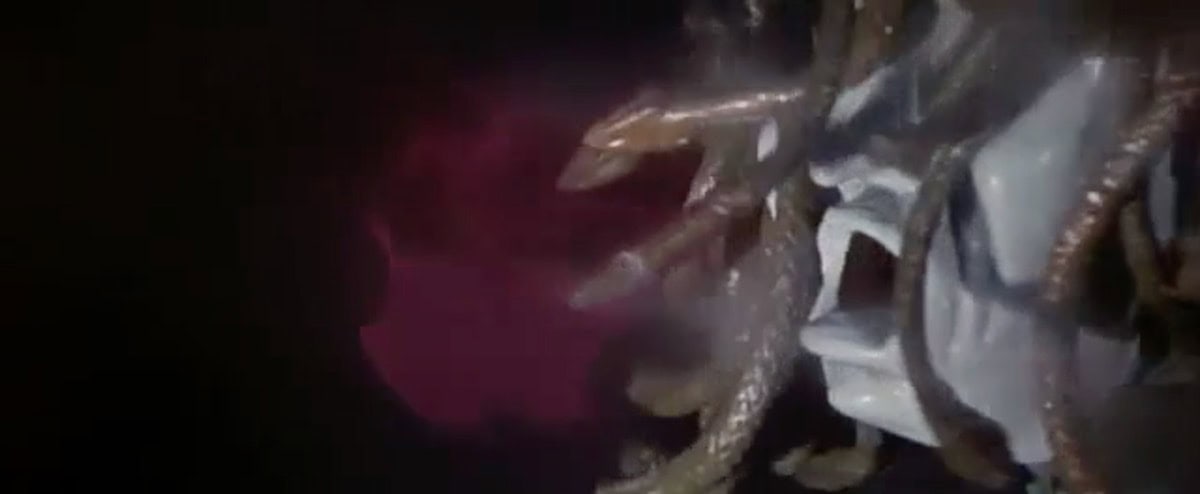
The symbol of Medusa, representing transformation and the duality of beauty and horror, resonates with Nicholas’s own journey throughout the film. This scene serves as a powerful reminder of the ways in which ancient myths can still inform and enrich modern storytelling, crafting layers of meaning that invite viewers to delve deeper into their own interpretations of reality.
In The Magus, you will also see another statue, most likely depicting the Greek Goddess, Athena, the goddess of wisdom and warfare. Her presence in the narrative adds depth and reinforces themes of knowledge and strength.
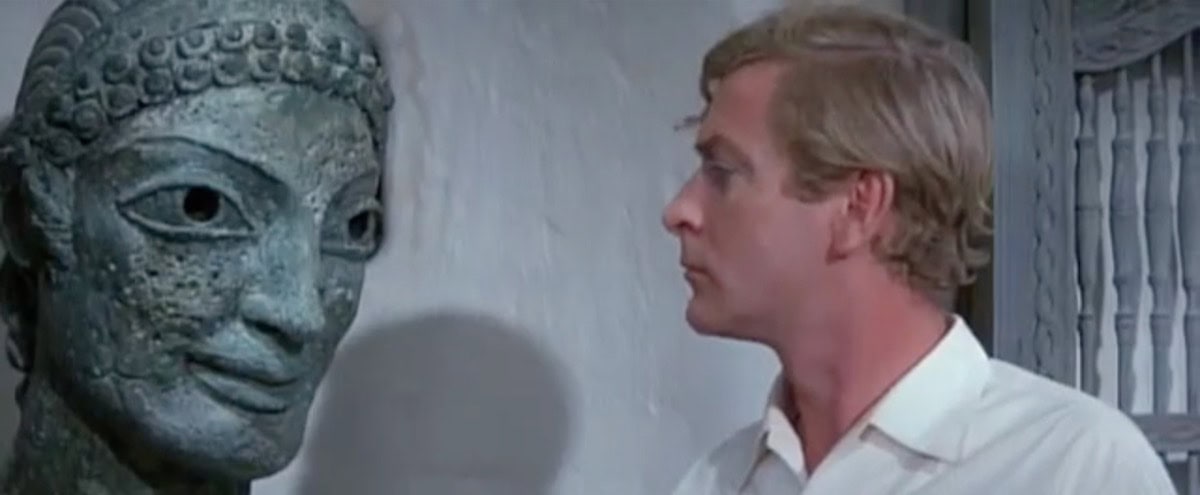
The Magus Movie: Review Conclusion
In conclusion, The Magus (1968) may be infamous for being labeled as “the worst film ever made” by some critics, but this harsh judgment overlooks its unique charm and captivating narrative. While it hasn’t received the accolades of a cinematic masterpiece, it offers a fascinating exploration of psychological manipulation, illusion, and the enigmatic nature of reality — concepts that resonate deeply with fans of Greek mythology.
The film’s protagonist, Nicholas, played by the enigmatic Michael Caine, finds himself entangled in a web of deceit and intrigue on a Greek island, drawing parallels to classic mythological tales of Gods and mortals.
Another standout element of The Magus is its beautiful cinematography, filmed entirely on location in Greece, Spain and England.
The film is filled with metaphors and themes reminiscent of ancient myths, making it an enriching experience for those familiar with the genre. As soon as you see the sculpture of Zeus — in art circles called the Zeus of Artemision (also called Poseidon) — your mind will go into overdrive!
I’m not sure which of these two movies is more mysterious: The Magus or Glass Onion: A Knives Out Mystery. Nevertheless, both films are entertaining and feature intriguing under-the-radar Greek mythology themes!
If you want to watch another great Anthony Quinn movie, I can highly recommend The Greek Tycoon (1978), which was released a decade after The Magus.
While The Magus may not be universally praised, with plenty of detractors, to me, it’s a captivating ride through the corridors of the human psyche. It effectively draws viewers into its surreal world, offering a rollercoaster of emotions that will keep them guessing. Those willing to embrace its eccentricities will find a treasure trove of ideas and visuals to ponder long after the movie has finished.
For fans of Greek mythology or anyone intrigued by psychological dramas, The Magus is not just a film to watch — it’s a mind-blowing experience! I highly recommend it!
Pin it … Share it
